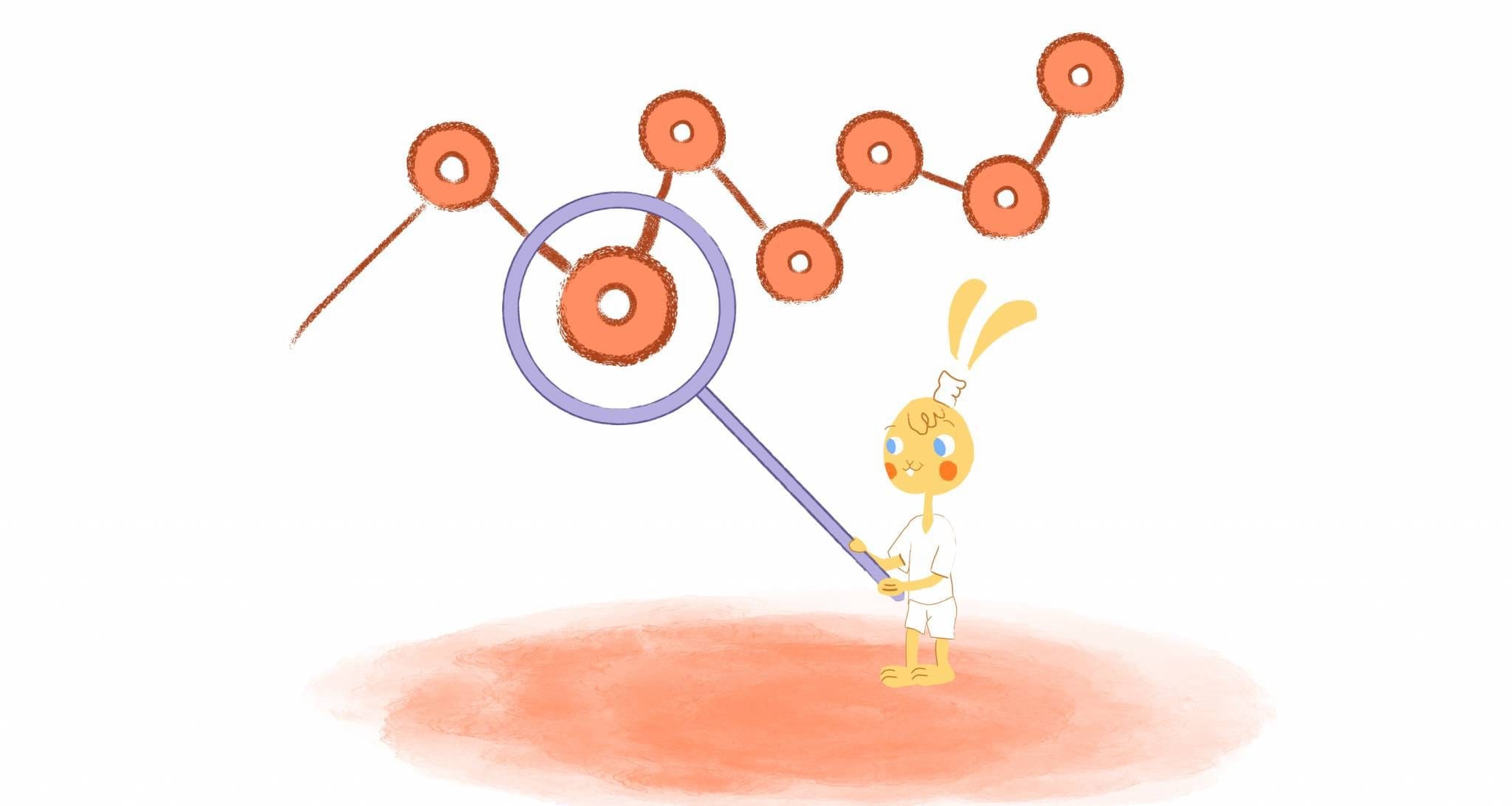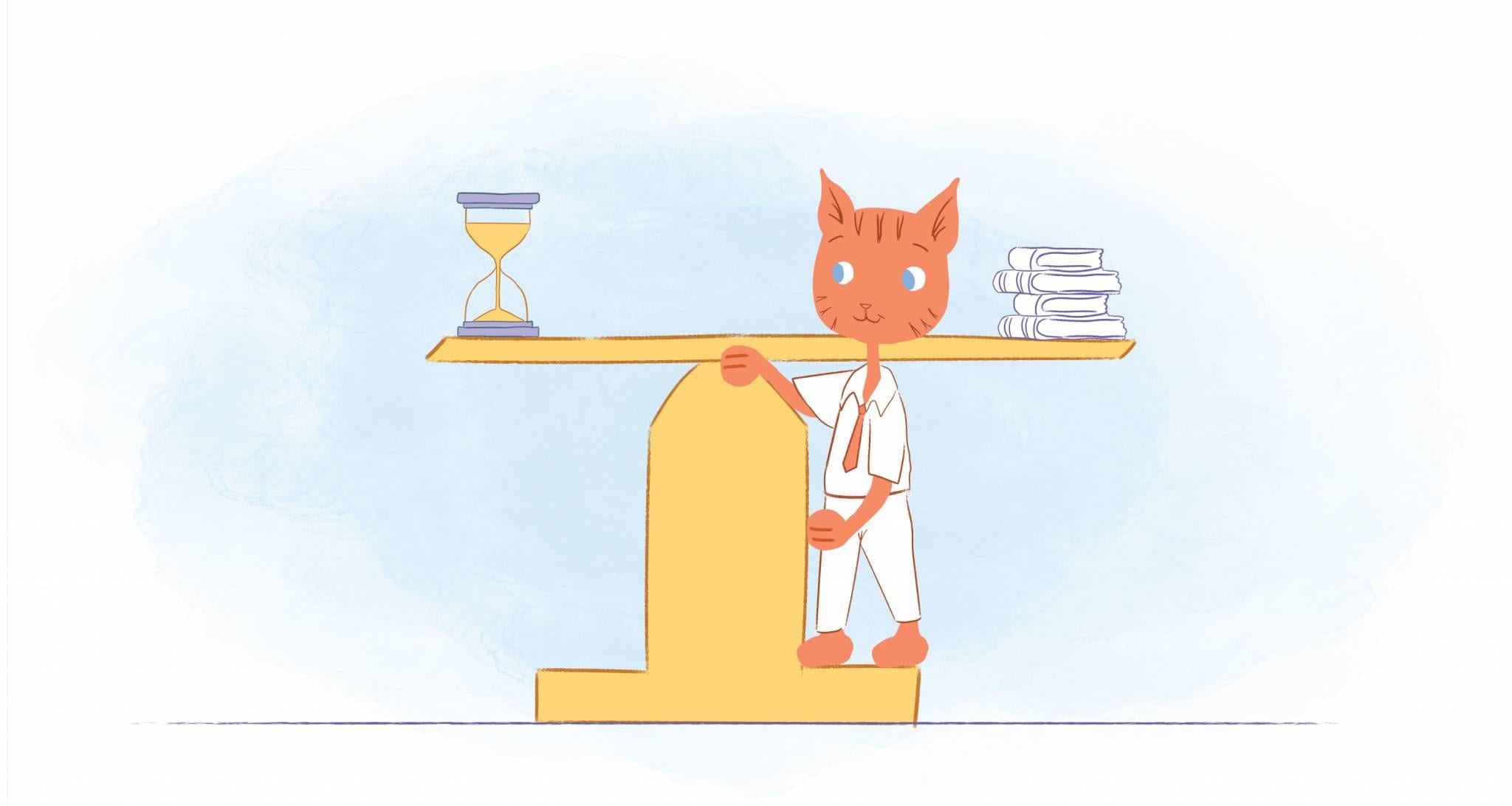

Productivity may seem like a more recent concept. But, the truth is, humanity has been interested in this topic throughout history. Case in point, the words of wisdom from the 9 ancient philosophers. Personally, they still ring true today just as they today centuries ago.
1. Start small but strong.
“A journey of a thousand miles begins with a single step.” — Lao Tzu
Every goal that you set in life requires you to take that all-important first step. Of course, that’s easier said than done. Whether it’s self-doubt, fear of being overwhelmed, it’s hard to get started.
So, how can you overcome this? Well, according to Desmond Tutu, “there is only one way to eat an elephant: a bite at a time.” He didn’t mean this literally. Instead, when there’s a seemingly insurmountable task in front of you, break it down into smaller chunks.
It’s a simple way to make the impossible more attainable. Even better? It also makes getting started a whole lot easier. In turn, you’ll build momentum. And, as the old proverb goals, “a rolling stone gathers no moss.”
At the same time, make sure that you get off to a strong start. While that doesn’t mean falling into the perfection trap, it does mean giving it your best. When you do, it will seem like everything else will fall into place more easily.
As Plato once said, “The beginning is the most important part of the work.”
2. Be productive, not busy.
“Beware the barrenness of a busy life.” — Socrates
“Are you busy or productive?” asks Choncé Maddox in a previous Calendar article. Understanding the difference between the two “is key if you ever want to be able to come up for air and still know that you’re reaching your goals.”
“I hate the word busy because it’s so overused,” adds Choncé. “A lot of us have packed schedules and things going on. However, I still don’t like to see ‘busy’ being worn as a badge of honor.” Instead, Choncé focused on getting results and making progress.
How does she achieve this? Well, productive people do not add more to their to-do-lists. They’re more concerned with quality over quantity.
Moreover, they don’t jump at every assignment or opportunity. They’re more selective. In other words, they choose to spend their time and energy on anything related to their priorities.
And, productive people don’t cave-in to distractions. They also avoid multitasking. And, they work smarter, not harder.
3. Live in the present.
“Nothing, to my way of thinking, is a better proof of a well-ordered mind than a man’s ability to stop just where he is and pass some time in his own company.” — Seneca
I think that a lot of us struggle with being present. That doesn’t mean living your life with a YOLO mentality. It just makes you need to slow down and bring yourself back to right now periodically.
Meditating is one of the best ways to go about this. But, it could also be going for a walk outside without your phone after lunch. If you have a gap between meetings, just stare out your window. Or begin journaling daily.
When you’re present, you’ll reduce stress and spark creativity. Additionally, this could help improve your social skills and be more appreciative. And, it could also encourage you to experience new things and be a little more playful.
4. Focus on the important, eliminate everything else.
“If you seek tranquility, do less. Or (more accurately) do what’s essential. Do less better. Because most of what we do or say is not essential. If you can eliminate it, you’ll have more tranquility.” — Marcus Aurelius
Again, being productive isn’t working around the clock. It’s all about focusing your time and energy on the vital few. If you’re curious, these would be your priorities, like your most important task for the day or quality time with your family.
After identifying your vital few, you next have to eliminate the unnecessary. After all, if you’re spending all day on busywork that could have been delegated, then when will you have the time to work on your priorities.
In addition to delegating and outsourcing tasks, you should completely remove non-essential items from your to-do-list. You should also eradicate distractions, like turning off your phone. And, if there’s anything else holding you back, like a toxic individual, you may want to remove them from your life as well.
5. Focus on what you can control.
“Make the best use of what’s in your power and take the rest as it happens.”– Epictetus
Don’t waste your time on things that are out of your hands. For instance, a colleague called out sick and will now be a couple of days behind completing their part of the work. It’s frustrating. But, just focus on what you need to get done, so at least you’re also not playing catch-up.
6. Remember your why.
“When you are inspired by some great purpose, some extraordinary project, all your thoughts break their bonds.” — Patanjali
Why do you get out of bed each morning? If you can’t answer that question, then how can you expect to maintain your motivation and productivity? After all, your purpose ignites your passion and guides you in being more intentional with your time.
The thing to remember, however, is that inspiration hardly strikes. You have to go out and find if you’ve lost your way. One simple way to do this is by spending some time alone and reflecting on how you spend your time.
You can also practice gratitude. And, don’t rule out turning to books, podcasts, Ted Talks, or quotes that inspire you.
7. Enjoy what you do.
“Pleasure in the job puts perfection in the work.” — Aristotle
Real productivity comes from making it your passion. While some people like Mark Cuban might disagree, others like Steve Jobs and Richard Branson are on Aristotle’s side.
Passion keeps you energized and focused. It’s also beneficial for your health. And it fuels your self-belief.
Still not convinced? Passion enables innovation, motivation and encourages you to excel. Most importantly, it helps you manage your workload since you’re spending the majority of your time doing what you enjoy.
8. Don’t rush perfection.
“Haste in every business brings failures.”– Herodotus
I’m not advocating that you become a perfectionist. Instead, believe that Herodotus was stressing the importance of doing things correctly the first time around. You know, the whole measure twice and cut once mentality.
I understand that sometimes working against the clock can push you to complete a task more quickly. But, there are just certain things where you need to slow down and take your time. If you don’t, you might cut corners or make costly mistakes.
To ensure that you aren’t rushing perfection, give yourself more time than you need. For example, you could block out three hours in your calendar for your most important task of the day, even though you only need two.
9. Rely on systems, not goals.
“Great acts are made up of small deeds.” — Lao Tzu
“No disrespect to goals here,” writes Calendar Co-Founder John Hall. “But, they can be problematic.” In fact, research has found that narrow goals can cause:
- A lack of intrinsic motivation.
- Reduce the desire to learn.
- Encourage you to focus on the short-term.
Additionally, James Clear states goals aren’t effective because both “winners and losers have the same goals” when it’s all said and done. Also, achieving a goal is a momentary change, restricts happiness, and conflict with your long-term progress.
“None of this is to say that goals are useless,” explains Clear. “However, I’ve found that goals are good for planning your progress, and systems are good for actually making progress.”
“Goals can provide direction and even push you forward in the short-term, but eventually, a well-designed system will always win,” he adds. “Having a system is what matters. Committing to the process is what makes the difference.”











Max Palmer
I'm Max, and I love helping businesses we work with expand their businesses online. Growth potential is what we strive for! I help with press, productivity and overall business needs for business owners.